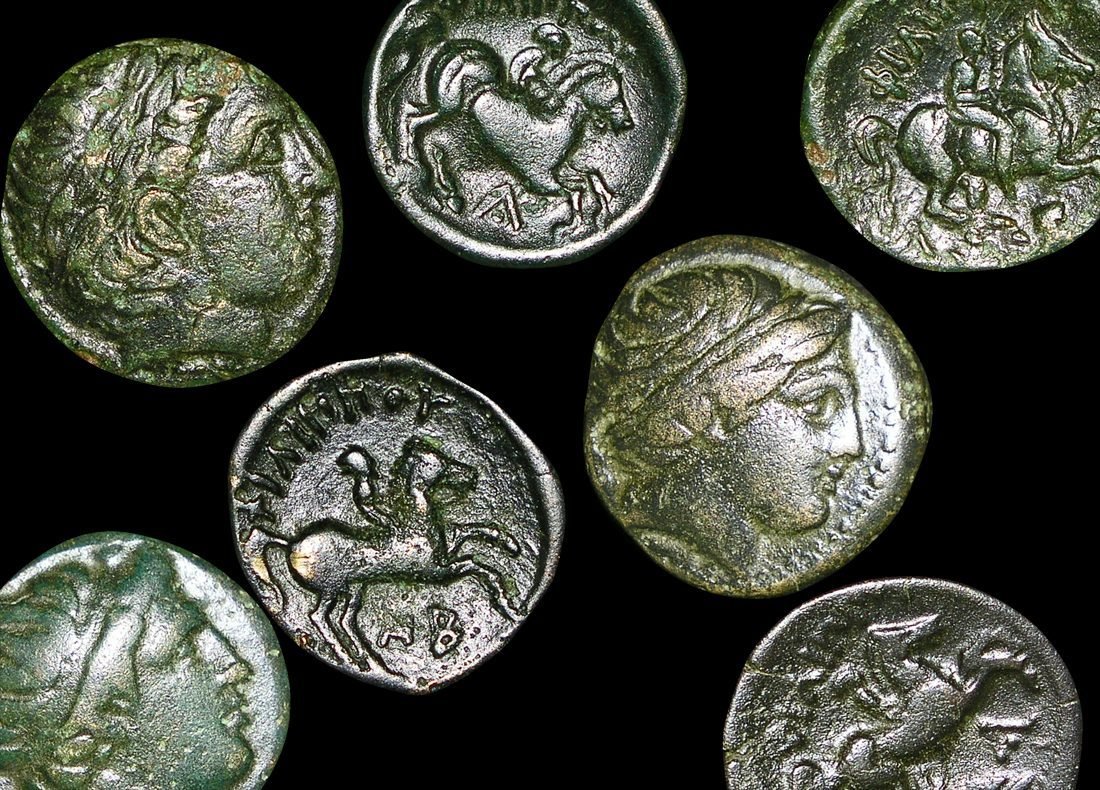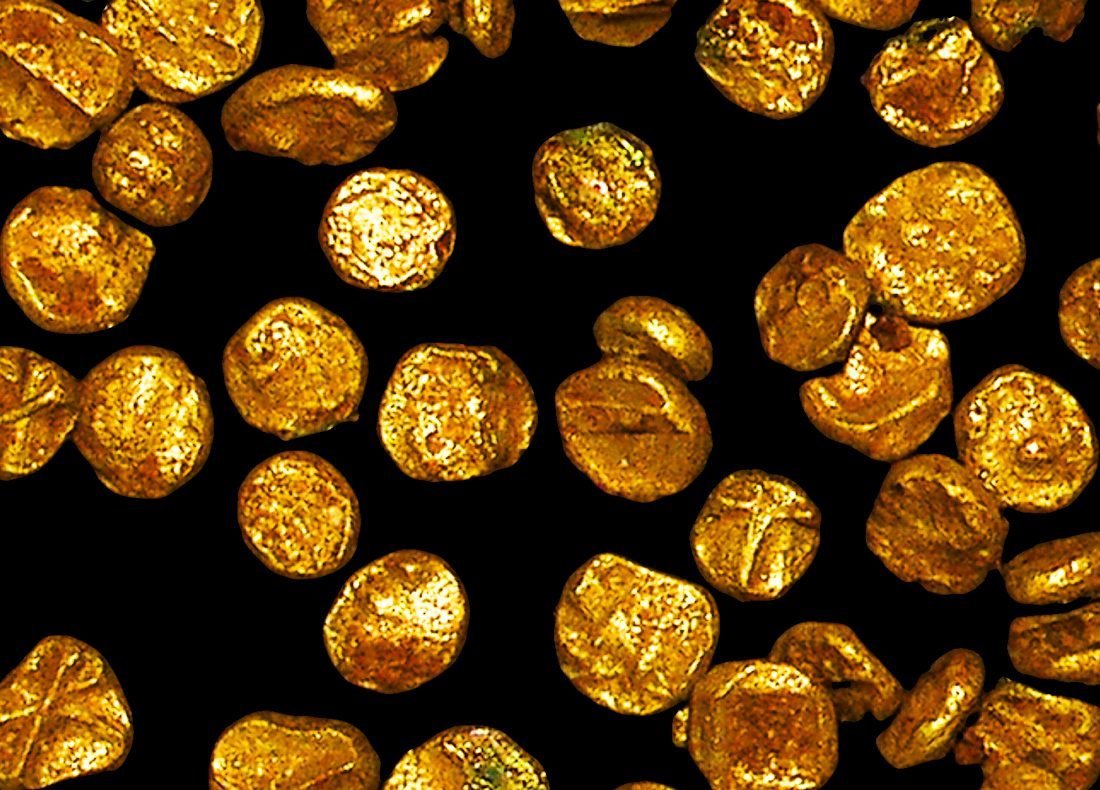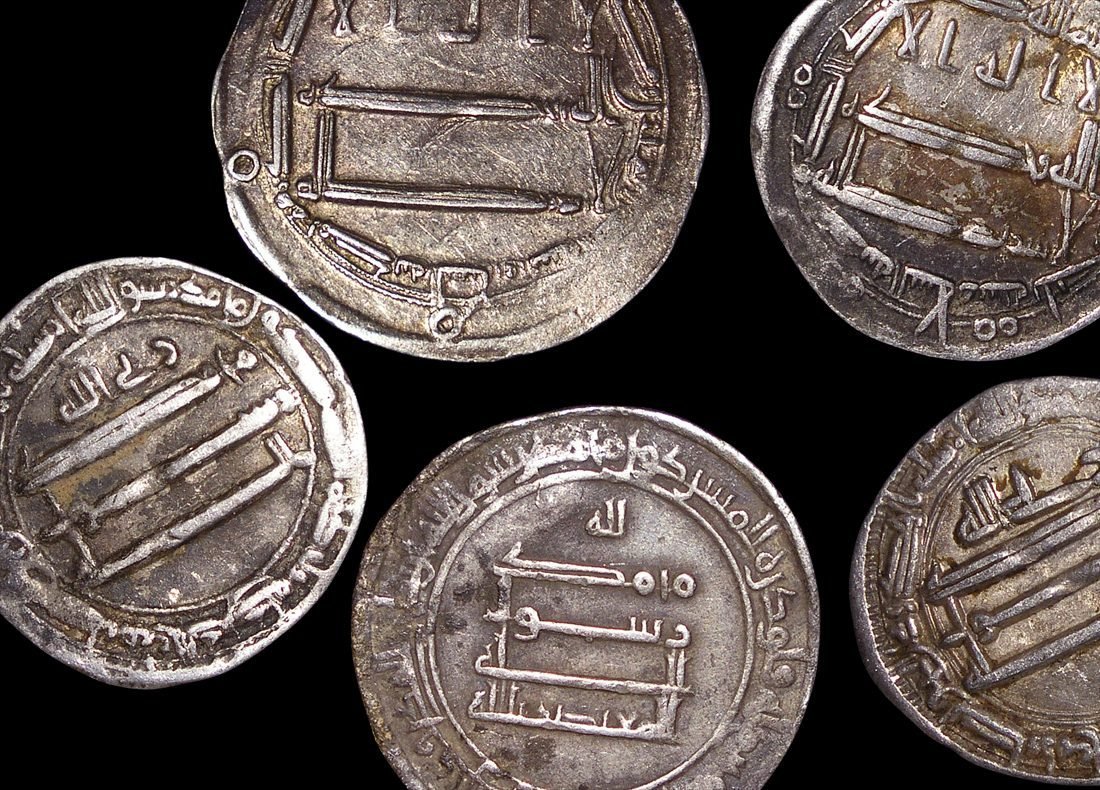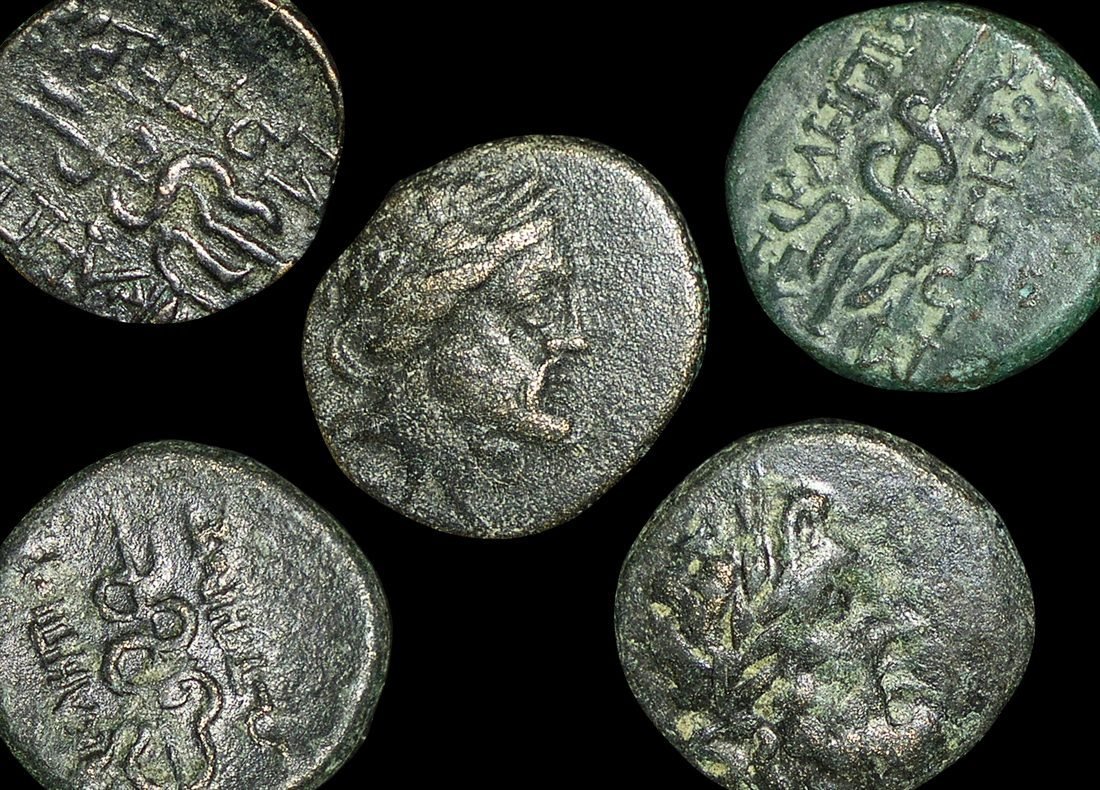Ancient Greece, Kingdom Of Macedon, Philip Ii Of Macedon (359 - 336 Bce), 'Father Of Alexander The Great', Bronze Unit
Coins in pictures are examples only.
Gk-Macedon-Philip-Ii Ancient Greece, Kingdomg Of Macedon, Philip Ii Of Macedon (359 - 336 Bce), 'Father Of Alexander The Great', Bronze Unit(C).
On coin picked at random. Philip was the father of Alexander the Great and chief architect of the mighty Macedonian army, with its invincible Phalanx formation, that after his death, his son would use to conquer the Persian Empire. In his own lifetime, Philip used this army to defeat the established powers of Ancient Greece at Chaeronea in 338 BCE, binding them together into the League of Corinth. On the eve of his invasion of Persia in 336 BCE, he was assassinated by one of his own body guards. It has been suggested that his son Alexander was involved in the planning his murder.
Coins in pictures are examples only.
Gk-Macedon-Philip-Ii Ancient Greece, Kingdomg Of Macedon, Philip Ii Of Macedon (359 - 336 Bce), 'Father Of Alexander The Great', Bronze Unit(C).
On coin picked at random. Philip was the father of Alexander the Great and chief architect of the mighty Macedonian army, with its invincible Phalanx formation, that after his death, his son would use to conquer the Persian Empire. In his own lifetime, Philip used this army to defeat the established powers of Ancient Greece at Chaeronea in 338 BCE, binding them together into the League of Corinth. On the eve of his invasion of Persia in 336 BCE, he was assassinated by one of his own body guards. It has been suggested that his son Alexander was involved in the planning his murder.
Coins in pictures are examples only.
Gk-Macedon-Philip-Ii Ancient Greece, Kingdomg Of Macedon, Philip Ii Of Macedon (359 - 336 Bce), 'Father Of Alexander The Great', Bronze Unit(C).
On coin picked at random. Philip was the father of Alexander the Great and chief architect of the mighty Macedonian army, with its invincible Phalanx formation, that after his death, his son would use to conquer the Persian Empire. In his own lifetime, Philip used this army to defeat the established powers of Ancient Greece at Chaeronea in 338 BCE, binding them together into the League of Corinth. On the eve of his invasion of Persia in 336 BCE, he was assassinated by one of his own body guards. It has been suggested that his son Alexander was involved in the planning his murder.







